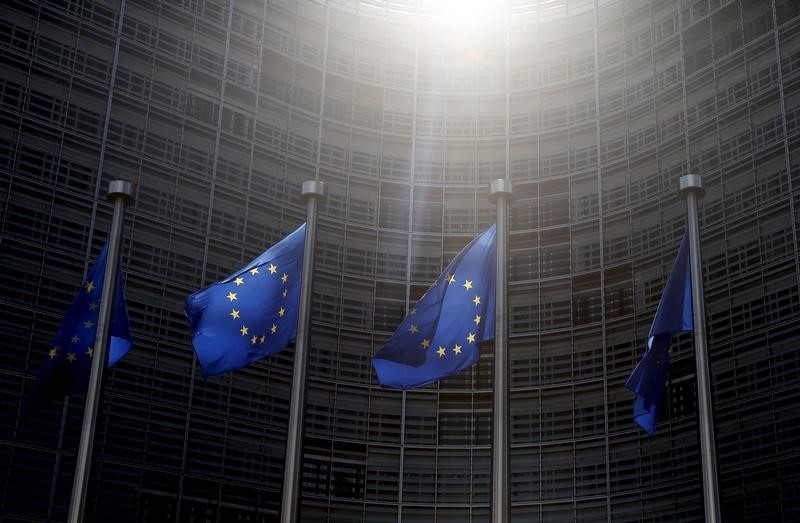By Francesco Guarascio
BRUSSELS (Reuters) - Despite surprisingly strong growth in the first quarter, euro zone growth is likely to slow down slightly this year as ultra-low interest rates have yet to spur faster investment, the European Commission said on Tuesday.
The EU executive arm forecast that the economy of the 19 countries sharing the euro would expand 1.6 percent this year, down from 1.7 percent last year, and accelerate to 1.8 percent in 2017. This is 0.1 point less than it forecast in February.
This stands in contrast to first quarter gross domestic quarter released last week that showed the euro zone growing 0.6 percent for the three months, faster than both the United States and Britain.
The Commission said that low oil prices, interest rates at zero or less, a weak euro and supportive fiscal policy would underpin growth this year, but that "the level of investment remains depressed and unemployment far too high."
"Future growth will increasingly depend on the opportunities we create for ourselves," Commission Vice President Valdis Dombrovskis said.
"That means stepping up our structural reform efforts to address ... high levels of public and private debt, vulnerabilities in the financial sector or declining competitiveness," he said.
The ECB has cut its main refinancing rate to zero and is charging banks for keeping their deposits in a bid to seek a returns through lending to the real economy. It has also been buying hundreds of billions of euros worth of government bonds on the secondary market to inject more cash into the economy.
The bank is also seeking to fight deflation. In a separate release on Tuesday, the EU reported that producer prices rose 0.3 percent month-on-month in March, but were down 4. 2 percent year-on-year.
MONETARY POLICY NOT ENOUGH
The Commission said the ECB's efforts alone would not be enough, urging governments to implement reforms.
"It's clear that monetary policy is of high importance but it's also clear that cannot do everything," European Commissioner for Economic and Financial Affairs Pierre Moscovici told a news conference on Tuesday.
In a veiled swipe at the euro zone's biggest economy Germany, which is to maintain a budget surplus until 2017, the Commission said "some countries could take better advantage of their fiscal space to increase investment".
Germany has had a budget surplus since 2014 and at the same time the country has for years had a large current account surplus that has been exceeding the EU ceiling of 6 percent of GDP, beyond which it is considered an imbalance.
Commission officials say that this points to insufficient domestic demand in Germany, which could be addressed through higher wages and more investment.
Such policies could also help the ultra low inflation rates, which the Commission revised down in its latest forecast to 0.2 percent this year and 1.4 percent in 2017 -- far from the ECB's target of below, but close to 2 percent.
The Commission also called on spendthrift countries to keep their deficits under control, reduce public debts and carry out necessary structural reforms.
France, Italy, Spain and Portugal are set to miss European Union budget targets this year and next without urgent government action, the European Commission forecasts showed.

"We absolutely have to reduce deficit and debt to invest more," Moscovici said, but declined to comment if the EU executive would move to step up disciplinary budget procedures against those breaking EU rules.